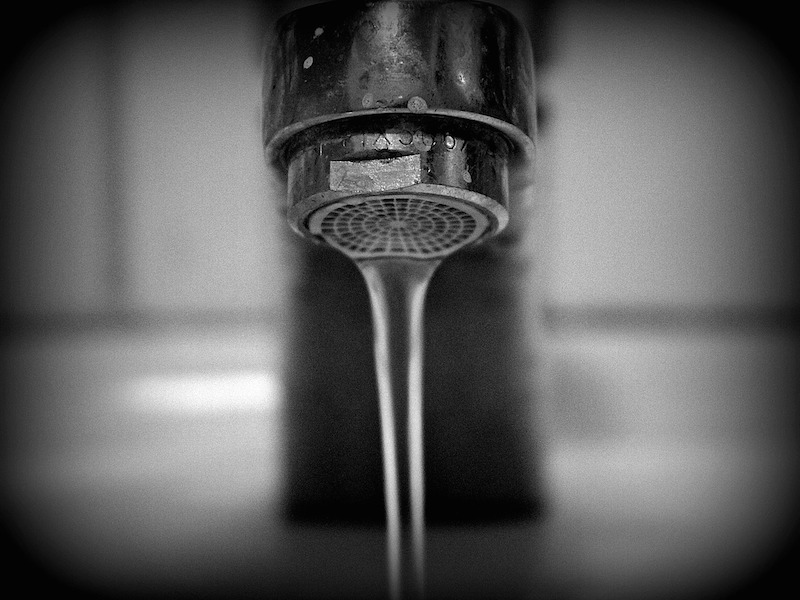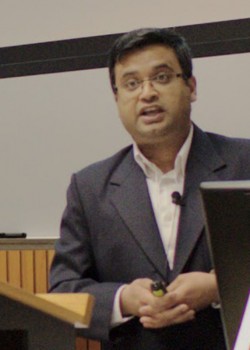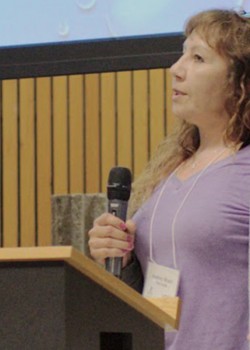
Antibiotic resistance found in First Nation drinking water
University of Manitoba microbiologists have identified a new threat to household water in First Nation communities.
Many First Nations have drinking water contaminated with bacteria – a situation Prime Minister Justin Trudeau has promised to tackle. Dr. Ayush Kumar’s team recently discovered that some of those bacteria are resistant to antibiotics, putting residents who drink the water or bathe in it at risk of hard-to-treat skin and gut infections.
“If I lived there, I would be very concerned,” Kumar said after presenting his findings May 26 at the university’s third annual First Nation water rights research conference.
Kumar also tested Winnipeg tap water, where he found no sign of antibiotic-resistant bacteria.
Research by a team that included Dr. Annemieke Farenhorst and Dr. Ehsan Khafipour showed that chlorine levels in the storage tanks, buckets and taps where First Nation residents get their drinking water are sometimes too low. Water is often safe when it leaves a treatment plant but bacteria-killing chlorine dissipates by the time the water reaches homes. Frank Cook told conference participants that Sapotaweyak Cree Nation found it easier to keep water clean in above-ground storage tanks than below-ground tanks that tend to crack.
Kumar’s findings will be published this summer in Applied and Environmental Microbiology.
Absence of regulation means that water systems in First Nation communities are often not built to the same standards as those off reserve, Amanda Klasing from Human Rights Watch told conference participants. The former Harper government passed a Safe Drinking Water for First Nations Act without the support of First Nations, which might need to be rewritten before any regulations can be developed.
Meanwhile, raising chlorine levels can be complicated in communities where organic matter in the source water combines with the chlorine to produce cancer-causing compounds. Elders who grew up drinking from lakes and streams don’t trust the taste of treated water. They also question whether it has lost its spiritual power as a medicine, said Klasing, who wonders if another treatment method might be more consistent with traditional teachings.
Audrey Brass became a clean water champion in Pine Creek First Nation after she realized that kids without enough clean water at home were missing school or being bullied. Now she works with PhD student Geethani Eragoda Arachchilage to gather the data her community needs to prove to governments there’s a problem.
“We’re going to have to smarten up, join forces and just do what’s right,” Brass said.
The conference, attended by about 100 researchers and First Nation partners, was jointly organized by the CREATE H2O training program for science and engineering students and law Prof. Karen Busby’s right to clean water project.
Some of the other research discussed at the conference:
- First Nation residents with proper sanitation are 38 per cent more likely to report that they are in good health than those without. (Dr. Melanie O’Gorman, U of Winnipeg)
- In St. Theresa Point, two-thirds of people surveyed run out of water at home. Residents there were outraged to discover that the Northern Store is profiting from that human rights violation by filtering water from the First Nation’s treatment plant and bottling it for sale. (Raymond Harper, St. Theresa Point)
- In Anishinaabe law, humans are at the bottom of the hierarchy. We are pitiful beings who need to be reminded to fulfill our responsibilities to the other beings – including water spirits – on whom we depend. (Leona Star, First Nations Health and Social Secretariat of Manitoba and U of M law Prof. Aimée Craft)
- Advocacy campaign messages that frame drinking water as a human right, show that solutions are feasible, remind people how they are connected to their own communities, emphasize the suffering of children and enlist support from other minority Canadians are likely to be effective. ( Katherine Starzyk, U of M)
Presentations will be posted to the CREATE H2O website.








